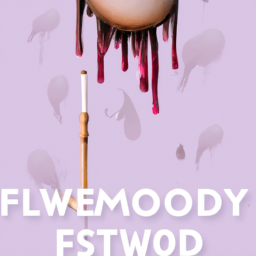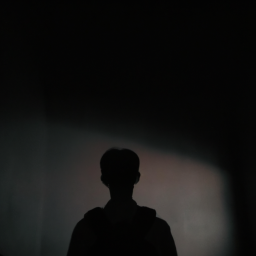While lying in bed, I see a familiar face appear before me. It’s my grandmother who passed away years ago, but here she is, standing in front of me with a smile. This isn’t the first time I’ve dreamed of her since her passing, and I know others have experienced the same thing. Dreaming about loved ones who have passed away is a common occurrence, bringing up a mix of emotions such as comfort and confusion.
In this article, I will explore the significance of these dreams, how to cope with grief and loss, and techniques for encouraging these dreams.
For many, dreams of deceased loved ones can provide a sense of comfort and connection. It’s as if they are still with us, even if it’s only in our dreams. However, these dreams can also bring up feelings of sadness and confusion.
What do these dreams mean? Are they messages from beyond the grave? In this article, we will delve into the different theories behind these dreams and the role they play in the grieving process.
Whether you have experienced these dreams yourself or know someone who has, understanding their significance can help bring peace and closure after the loss of a loved one.
Key Takeaways
- Dreams of deceased loved ones can provide comfort and connection, and may be a form of communication or reflection of the subconscious mind.
- Symbols in dreams can carry deep meanings unique to each individual, and seeking guidance from experts in dream analysis can help gain deeper understanding.
- Coping with grief and loss involves finding healthy ways to process emotions, and dreams can be a way to process feelings of loss and continue to feel connected to loved ones.
- Honoring memories can take many forms, such as creating a memorial or carrying on traditions, and continuing their legacy can be done through volunteering or passing down their values.
Common Experiences of Dreaming of Deceased Loved Ones
It’s common to feel like our deceased loved ones are still with us when we dream about them. These dreams can be incredibly vivid and feel like they’re real, making us feel like we’ve been visited by our loved ones from beyond the grave.
In these dreams, we can often hear their voices, feel their touch, and experience their presence in a way that feels tangible. Dreaming of deceased loved ones can also bring up a lot of emotions, from joy and comfort to sadness and grief.
It can be a way for us to process our feelings of loss and continue to feel connected to our loved ones, even after they’re gone. But what do these dreams mean, and why do we have them? Let’s explore some theories on the significance of dreams of deceased loved ones.
Theories on the Significance of Dreams of Deceased Loved Ones
You may find comfort in knowing that some theories suggest when those who’ve left this world visit you in your slumber, it could mean they’re trying to communicate with you from beyond.
Some people believe that the deceased loved ones visit us in our dreams to offer comfort, guidance, or to let us know that they’re still with us.
Others suggest that it may be a reflection of our subconscious mind trying to process the grief of losing someone close to us.
Regardless of the reason, it’s clear that dreaming of a loved one who has passed away can be a powerful experience.
It can provide a sense of connection and closure that may be difficult to find in waking life.
However, it’s important to remember that while these dreams can be comforting, they may also bring up feelings of sadness and longing.
Coping with grief and loss is a difficult journey, but finding healthy ways to process these emotions can help us move forward.
Coping with Grief and Loss
Navigating the complex emotions that come with experiencing loss can be a challenging process, but it is important to find healthy coping mechanisms to help facilitate healing. Some people find solace in talking to a therapist or a grief counselor to help them process their emotions. Others may find comfort in journaling, meditating, or joining a support group with others who are going through a similar experience.
It’s important to remember that there is no right or wrong way to cope with grief and loss. Everyone processes their emotions differently, so it’s important to find what works best for you. By finding healthy coping mechanisms, you can help yourself heal and move forward while still cherishing the memories of your loved one. Understanding the role of dreams in the grieving process can also provide insight into this complex emotional journey.
Understanding the Role of Dreams in the Grieving Process
I believe that dreams play an important role in the grieving process.
Firstly, dreams can serve as a form of communication from our loved ones who’ve passed away.
Secondly, dreams can reflect our subconscious thoughts and emotions, providing us with a deeper understanding of our own grief and allowing us to process our feelings in a safe and therapeutic way.
Lastly, exploring our dreams can help us find meaning and comfort in our loss, ultimately aiding us in our journey towards healing and acceptance.
Dreams as a Form of Communication
Sometimes, when my loved ones pass away, I have dreams about them. At first, it can be overwhelming and confusing, but as I’ve begun to understand the role of dreams in the grieving process, I’ve realized that these dreams can be a form of communication.
It’s like they’re reaching out to me from beyond, letting me know that they’re okay and watching over me. In these dreams, we may have conversations, share memories, or simply be together in a peaceful moment.
However, I also know that dreams can be a reflection of the subconscious mind. As much as I want to believe that my loved ones are visiting me, I understand that my mind may be processing my grief in its own way.
These dreams may be a way for me to work through my emotions and come to terms with their passing. Despite this, I still find comfort in these dreams and cherish the moments I get to spend with my loved ones, even if it’s just in my subconscious.
Dreams as a Reflection of the Subconscious Mind
Dreams can reveal hidden desires and fears that our conscious mind may not be aware of. When we dream, our subconscious mind takes over and communicates with us in a symbolic language. Here are four ways in which dreams can reflect our subconscious mind:
-
Dreams can bring up unresolved emotions and past experiences that we may have buried deep within ourselves.
-
They can reveal our deepest desires and aspirations, which we may have been too afraid to acknowledge in our waking life.
-
Dreams can also highlight our fears and insecurities, allowing us to confront and overcome them.
-
They can serve as a warning sign or an intuitive message, guiding us in the right direction.
As we explore the meaning behind our dreams, we may come across dreams of loved ones who have passed away. These dreams can hold a special significance, as they may be a way for our deceased loved ones to communicate with us.
Let’s take a closer look at how we can interpret these dreams and what they may be trying to tell us.
Interpreting Dreams of Deceased Loved Ones
I find it fascinating to interpret dreams of deceased loved ones as it gives me a sense of connection to them and a possible insight into their messages.
This subtopic will explore three key points when interpreting these dreams: symbolism and meaning, personal interpretations, and seeking guidance from experts.
By understanding these points, we can better analyze our dreams and find comfort in the messages our loved ones may be sending us.
Symbolism and Meaning
The symbols in these dreams of departed loved ones can bring comfort and closure to those grieving. They often carry deep meanings that are unique to each individual and their relationship with the deceased. Here are some common symbols and what they can represent in dreams:
- Butterflies: transformation, rebirth, freedom
- Rainbows: hope, promise, connection with the divine
- Birds: messages from the deceased, freedom, peace
- Flowers: love, beauty, growth
- Embraces: love, comfort, closure
These symbols can serve as a way for our departed loved ones to communicate with us and offer reassurance that they’re still with us in some form. As we interpret these symbols in our dreams, we can gain a better understanding of our own emotions and experiences related to our loved one’s passing.
Moving into the next section about personal interpretations, I often find that my own dreams of departed loved ones are deeply personal and reflect my own unique relationship with them.
Personal Interpretations
By exploring personal interpretations of symbols in dreams, I’ve found that dreams of loved ones who have passed away can bring comfort and a sense of connection. When I dream of my grandmother, for example, I often see her in her garden or cooking in the kitchen – activities that were important to her in life. To me, this signifies that she’s at peace and still engaged in the things that brought her joy.
These personal interpretations are unique to each individual and can be a powerful tool in coping with grief. However, it can also be helpful to seek guidance from experts in dream analysis, such as therapists or spiritual advisors, to gain a deeper understanding of the messages our loved ones may be trying to communicate through our dreams.
Seeking Guidance from Experts
I’ve always been fascinated by the different interpretations people have of their dreams, especially when it comes to dreams of loved ones who have passed away. Some people believe that these dreams are simply a product of our subconscious mind, while others see them as a way for the deceased to communicate with us from the afterlife. Personally, I’ve always found comfort in the idea that these dreams hold some sort of significance, and that they can provide us with guidance and closure.
But what if we’re having trouble interpreting these dreams on our own? That’s where seeking guidance from experts can come in handy. There are a variety of professionals out there who specialize in dream analysis, and who can help us to better understand the messages we may be receiving from our deceased loved ones.
Here are a few ways that seeking guidance from experts can be beneficial:
-
Validation: Sometimes, simply having someone else confirm that our dreams are meaningful can be incredibly validating and reassuring.
-
Deeper Understanding: Dream experts can help us to dig deeper into the symbolism and meaning behind our dreams, allowing us to gain a more profound understanding of what our loved ones may be trying to tell us.
As helpful as seeking guidance from experts may be, there are also techniques that we can use on our own to encourage dreams of deceased loved ones. Let’s explore some of these techniques in the next section.
Techniques for Encouraging Dreams of Deceased Loved Ones
Want to increase the chances of dreaming of a loved one who has passed away? Try incorporating relaxation techniques before bed, like deep breathing or meditation.
Creating a calm and peaceful environment can make it easier for your mind to let go of distractions and focus on the possibility of connecting with your loved one in the dream world.
Additionally, keeping a dream journal by your bed can help you remember any details from your dreams that may involve your loved one.
Sharing your dreams with others can also be helpful in processing your emotions and feelings after experiencing a dream with a deceased loved one. It can be comforting to know that others have had similar experiences and can offer support and understanding.
Plus, talking about your dreams can help keep the memory of your loved one alive and create a space for healing and connection.
Sharing Your Dreams with Others
You can open up to others about your nighttime experiences and create a web of support, weaving together different perspectives and emotions like a patchwork quilt.
Sharing your dreams with others who have also experienced the loss of a loved one can be a healing and comforting experience. It can provide a sense of validation and reassurance that you’re not alone in your grief.
As you share your dreams, others may also feel comfortable sharing theirs, leading to a deeper understanding and connection among those who have experienced loss. This can ultimately lead to finding peace and closure through dreams as you navigate the complex emotions associated with grief.
By opening up and sharing your experiences, you may find solace in knowing that your loved one is still with you in some way, and that you’re not alone in your journey towards healing.
Finding Peace and Closure through Dreams
Discovering a sense of peace and closure through your dreams can be a powerful and emotional experience, helping to ease the pain of your loss and provide comfort in your grief journey. For me, dreaming of my loved ones who have passed away has become a way to connect with them and feel their presence once again. It’s almost like they’re visiting me in my sleep, and the emotions I feel in these dreams are so vivid and real that it’s hard to believe they’re not actually there.
One particularly memorable dream I had was about my grandfather, who had passed away a few years prior. In the dream, we were sitting in his favorite chair together, just talking and laughing like we used to when he was alive. It was such a simple moment, but it meant so much to me to be able to spend that time with him again, even if it was just in my dreams. These types of dreams have brought me so much comfort and closure, and I am grateful for every one of them.
Honoring the memories of deceased loved ones can take many forms, from creating a memorial to carrying on their traditions. For me, dreaming of my loved ones has become a way to honor their memory and keep them close to my heart.
Honoring the Memories of Deceased Loved Ones
I find it important to honor the memories of my loved ones who’ve passed away.
For me, this means celebrating their lives and all the joy they brought into the world.
It also means finding ways to continue their legacy and finding meaning in the loss we’ve experienced.
Celebrating Their Lives
Honoring the memories of loved ones who have passed away can bring comfort and joy, allowing us to celebrate their lives. It’s important to remember that even though they may no longer be physically present, their legacy and impact on our lives still exist.
Here are a few ways I like to celebrate and honor the lives of my loved ones who have passed:
- Sharing stories and memories with family and friends
- Creating a memorial or shrine in their honor
- Participating in activities or events they enjoyed
- Donating to a cause or organization that was important to them
By celebrating their lives in these ways, we keep their memory alive and continue to feel their presence in our lives. It’s a beautiful way to honor the impact they had on us and the world around them.
As we continue to celebrate their lives, we can also find ways to carry on their legacy and make a positive impact in their honor.
Continuing Their Legacy
As I celebrate the life of my loved one who’s passed away, I also think about how I can continue their legacy.
This person meant so much to me and had a great impact on my life, and I want to honor their memory by carrying on the things they were passionate about.
One way I can continue their legacy is by volunteering for causes or organizations that they supported. Whether it was a charity they donated to or a community group they were involved in, I can give my time and energy to those same efforts. By doing so, I not only keep their memory alive but also make a positive difference in the world, just like they did.
Another way is by passing down their values and teachings to future generations. By sharing their wisdom and experiences, I can ensure that their legacy lives on and enriches the lives of others.
As I reflect on ways to continue my loved one’s legacy, I realize that finding meaning in loss is an ongoing process. It’s not just about remembering or celebrating their life, but also about making a commitment to keep their memory alive and carry on the things they held dear.
Finding Meaning in Loss
You may feel lost and unsure of how to find meaning in your loss, but it’s important to remember that it’s a process that takes time and effort. When we lose a loved one, it can be difficult to come to terms with the fact that they are no longer with us. It’s natural to feel a range of emotions, from sadness to anger to confusion. But it’s important to allow yourself to feel these emotions and work through them in your own time.
One way to find meaning in your loss is to focus on the positive memories and experiences you shared with your loved one. Reflecting on the impact they had on your life and the lives of others can help you feel a sense of gratitude and appreciation for the time you had together. Additionally, finding ways to honor their memory and legacy can provide a sense of purpose and fulfillment. This can be done through activities such as volunteering, donating to a charity, or participating in a cause that was important to them. By doing so, you are continuing their legacy and keeping their memory alive.
| Positive Memories | Honoring their Legacy | ||
|---|---|---|---|
| Recalling happy moments shared together | Volunteering in their name | ||
| Reflecting on the positive impact they had on your life | Donating to a charity they supported | ||
| Sharing stories and memories with others | Participating in a cause they were passionate about | Honoring their values and beliefs in your own life choices. |
Frequently Asked Questions
Can dreams of deceased loved ones provide any insight into their afterlife or current state?
Dreams of deceased loved ones cannot provide insight into their afterlife or current state. However, these dreams can bring comfort and closure to the dreamer, and remind them of the love and memories shared with the deceased.
Is it common to have recurring dreams of the same deceased loved one?
It’s like a broken record, playing the same tune over and over. I often have recurring dreams of my deceased loved one. It’s a bittersweet reminder of their presence and absence.
How can you differentiate between a normal dream and a visitation dream from a deceased loved one?
I can differentiate between a normal dream and a visitation dream from a deceased loved one by paying attention to how vivid and realistic the dream feels, and if it includes a message or feeling of presence.
Are there any cultural or religious beliefs that affect the interpretation of dreams of deceased loved ones?
Oh boy, where do I begin with cultural and religious beliefs affecting dream interpretations? Let’s just say, it’s like trying to navigate a minefield blindfolded.
Can seeking out professional help assist in the processing of dreams of deceased loved ones?
Seeking professional help can assist in processing difficult emotions and experiences. Discussing dreams with a therapist or counselor can provide support and guidance in navigating grief and loss.
Conclusion
As I come to the end of this article, I can’t help but feel a sense of irony. Here I am, discussing the significance of dreams of deceased loved ones, yet I still can’t seem to shake the feeling of sadness that comes with their absence.
But maybe that’s just it – maybe dreams of our loved ones who have passed away are not meant to bring closure or peace, but rather a reminder of the love and memories we shared with them.
So, while the theories and interpretations of these dreams may vary, what remains constant is the love we have for those who have left us.
Whether we choose to actively encourage these dreams or simply let them happen naturally, they serve as a reminder that even in death, the love we shared with our loved ones will always remain.
And maybe, just maybe, that’s all the closure we really need.










